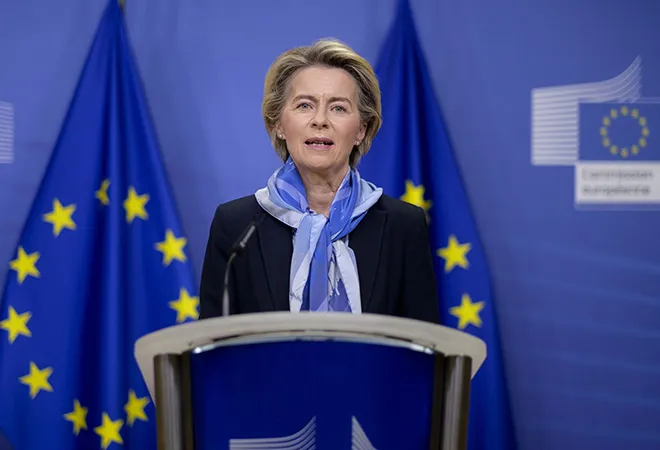
During the hey days of the Cold War, a group of newly decolonised countries sought to distance themselves from the struggle between the Soviet Union and the United States by proclaiming ‘non-alignment’. Led by Egypt’s Nasser, India’s Nehru, Indonesia’s Sukarno and Yugoslavia’s Tito, the Non-Aligned Movement or NAM claimed the moral high ground on issues ranging from apartheid to nuclear testing. This hectoring annoyed the United States in particular with Secretary of State Dulles famously terming nonalignment ‘immoral’ in 1956.
Truth be told, NAM’s high politics always had a lowly almost Machiavellian side. The nonaligned took money and development assistance from both Superpowers, their leaders exploited the Cold War rivalry to strengthen their domestic rule or simply mouthed NAM rhetoric while actually being in one camp or the other. Importantly, very few NAM countries had the hard power to back NAM’s soft influence and voting majorities in the United Nations.
History rhymes. Today, as a new Cold War brews between China and the United States, Europe seeks a NAM-like role anchored in values, its own independent appreciation of where European interests lie, and is refusing to be drawn into either camp on issues such as trade, technology or freedom of navigation in the South China Sea.
As a new Cold War brews between China and the United States, Europe seeks a NAM-like role anchored in values, its own independent appreciation of where European interests lie, and is refusing to be drawn into either camp on issues such as trade, technology or freedom of navigation in the South China Sea
Europe’s leading economic power, Germany, is a prime example but so are EU members from Europe’s periphery on the East and in the South. They want to profit from Chinese investments into European industry and infrastructure. They refuse to toe the US line on banning the Chinese telecom company Huawei from building 5G networks and see no harm in negotiating access to the Chinese market in exchange for investment concessions and a soft peddling of human rights concerns.
European elites may still retain sympathy for the United States, but they see contemporary America as a fickle power which has lost its moral moorings. The governing elites in NAM countries in the 1950s and 1960s, many of whom had studied in the United States and had been influenced by the values of the American constitution and American democracy, thought likewise. The heavy-handed response to the Civil Rights movement and the horrors of the Vietnam War strengthened their anti-Americanism. This is similar to the effect the excesses of Donald Trump’s Presidency have had on European elites. Jawahar Lal Nehru, visibly disappointed by his first brushes with American power, was said to have quipped: “No one should have to come to the US for the first time”! A candid mic today might capture similar musings from Angela Merkel or Emmanuel Macron. At a more prosaic level, a moral equivalence is beginning to take hold in European minds, say between the Black Lives Matter movement and China’s denial of human rights to the Uighurs and Tibetans, or between the practices of Silicon Valley giants and Chinese technology companies.
NAM did not age well and nor will Europe’s attempt at being a neutral and independent voice of reason. Given the possibility of escalation to nuclear weapons use, the two Superpowers refrained from confronting each other directly. They took care not to tangle with member countries from the opposite side’s military alliances—NATO and the Warsaw Pact. Instead, and somewhat ironically, they fought their battles on ‘neutral’ ground. NAM became the battleground not just for hearts and minds but also for hard spoils—military bases, energy and minerals. Multiply the hard spoils manyfold and you get the battleground of today. Europe is the biggest market for Silicon Valley’s digital behemoths as well as for China’s manufacturers and e-commerce companies, which are increasingly blocked from doing business in key non-European markets. As Chinese investments come under increasing scrutiny on national security grounds in countries such as the United States, India and Japan, they seek a productive outlet in Europe not only for returns on investment but also acquisition of critical technology and skills. The US for its part will fight hard to retain its post-Second World War preeminence in Europe and to fit its European Atlantic alliances into a larger canvas stretching to the Indo-Pacific. These contradictory pulls will put European countries under tremendous strain.
The US for its part will fight hard to retain its post-Second World War preeminence in Europe and to fit its European Atlantic alliances into a larger canvas stretching to the Indo-Pacific. These contradictory pulls will put European countries under tremendous strain
A look at the recent ASEAN experiment of engaging the major powers on its own terms in the 1990s and 2000s is instructive. The ten South East Asian countries thought that they could invite the big boys to play in their yard and sublimate their passions into candid dialogue. They could even be incentivised to invest, trade and help maintain financial stability in a large market of 600 million plus consumers. The balance sheet is sobering. On key political questions of sovereignty and international law, ASEAN is split and the economic and geopolitical spotlight has moved on to other regions. For Europe, the difficult choices have only just begun.
The views expressed above belong to the author(s). ORF research and analyses now available on Telegram! Click here to access our curated content — blogs, longforms and interviews.




 PREV
PREV

